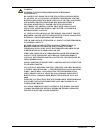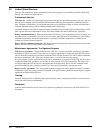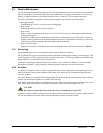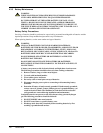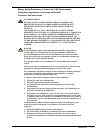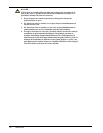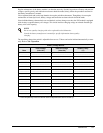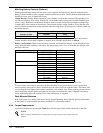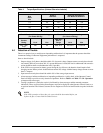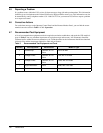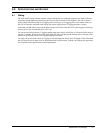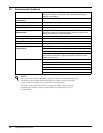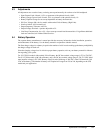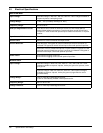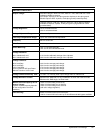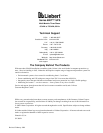
Specifications and Ratings 119
5.3 Adjustments
All adjustments are set at the factory or during start-up and normally do not have to be field readjusted.
• Input Current Limit: Normal, 115%; on generator (with optional circuit), 100%.
• Battery Charge Current Limit: Normal, 10%; on generator (with optional circuit), 1%.
• Battery Equalize Charge: Set at start-up dependent on battery characteristics.
• DC Over-Voltage: 600 volts for models with nominal 240 cell battery (High Link).
• Overload Alarm: 104% normal load.
• Output Frequency Tolerance: ±0.5 Hz.
• Output Voltage: Nominal—operator adjustable ±5%.
• Line Drop Compensation: 0 to +5%—Set at start-up to match load characteristics. If significant additional
loads are connected, call Liebert Global Services.
5.4 Battery Operation
The separate battery manufacturer’s manual provides the necessary information for the installation, operation,
and maintenance of the battery. Use the battery manual in conjunction with this manual.
The float charge voltage for a battery is equal to the number of cells in series making up the battery multiplied by
the charge voltage for each cell.
Since the charging voltage level is critical to proper battery operation, refer to your battery manual for informa-
tion regarding your system.
For 150-750 kVA models with nominal 240 cell battery, the DC bus nominal voltage range is 527 to 576 VDC.
For 65-125 kVA models (with 240 cell battery only), the DC bus nominal voltage range is 534-574 VDC. Maxi-
mum equalize voltage is 585 VDC. Battery voltage at end of discharge is 386 VDC at the UPS terminals (389
VDC at the battery). The number of battery cells required will range from 236 to 244, depending on the UPS
model and your application.



